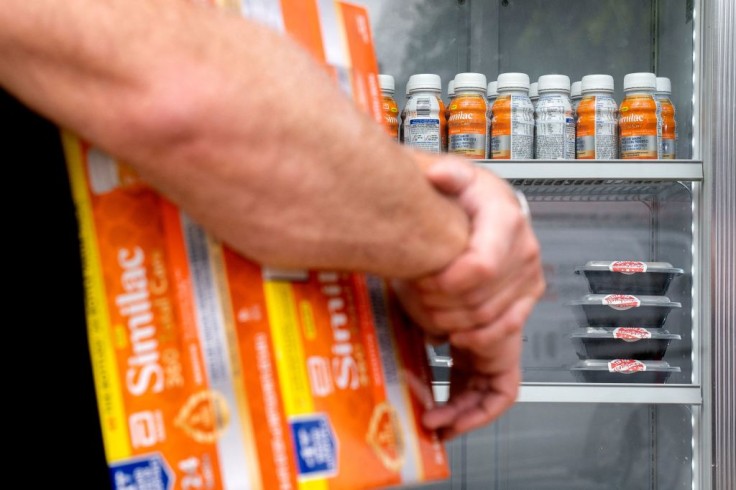
Abbott Laboratories made a huge announcement on Friday, August 26, saying that it is restarting its Similac baby formula production at its Michigan plant. The company expects to begin shipments to retail stores in about six weeks, according to NBC News.
The Sturgis facility at the center of the bacterial contamination concerns that triggered the nationwide shortage had already restarted production earlier this summer of EleCare and other specialty formulas, but not the Similac brand.
Abbott Chairman and CEO Robert B. Ford issued a statement, saying they know that the nationwide infant formula shortage has been difficult for the families they serve, and while restarting Similac production in Michigan is an important milestone, they won't rest until this product is back on shelves.
Michigan plant shutdown triggers nationwide formula shortage
The factory shutdown in February followed a voluntary recall of formula under the Food and Drug Administration (FDA) advice, urging consumers not to use specific batches of Alimentum, EleCare, and Similac products made at the Sturgis, Michigan plant.
The shutdown and voluntary recall resulted in a nationwide formula shortage that left American families scrambling for supplies. The shortage came amid a supply chain disruption brought upon by the COVID pandemic, which slowed the flow of goods to retailers.
The administration of President Joe Biden responded to the baby formula shortage by invoking the Defense Production Act to give priority to its makers and using military aircraft to ship baby formula from abroad.
Manufacturers turned to plants outside the United States to help combat the shortage. Abbott used the company's facilities in Ireland and Spain with help from relaxed federal enforcement regarding such importation of goods.
Some critics have partly blamed the country's essential reliance on only a few manufacturers for such a critical staple. Abbott said in a statement that the company expects to have put 8 million pounds of formula on retail shelves in the United States in August.
Abbott's priority is the quality and safety of its products
As formula production continues, Abbott cautioned consumers that there have been and could be more temporary stoppages to address substandard batches of products and other issues.
Abbott has repeatedly said that there was no evidence linking its formula products to the deaths of two infants and reports of illness among two other kids that prompted the recall. But the company has vowed to eliminate the bacterium at its Michigan plant and enhance the facility, focusing on preventing such a prolonged shutdown from ever happening again.
Abbott said they have a zero-tolerance policy for Cronobacter or any pathogens in their plants. The company said they make their products as if they were for their own families. Abbott noted it is important that the public knows that the quality and safety of their products are their priority, that they conduct microbiological testing throughout the manufacturing process, and that they would never release a product that does not meet their quality and safety standards.